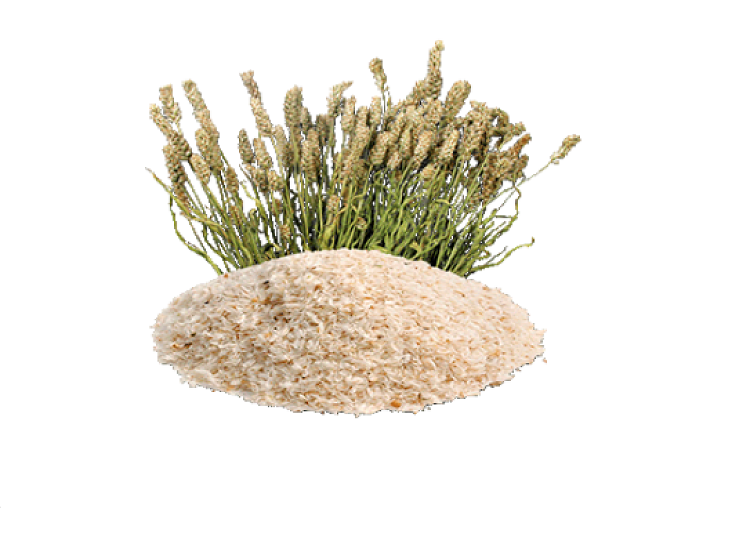Nutrition, Supplements
Can Psyllium Husk Help With Weight Loss?
One popular natural remedy for weight loss is psyllium, a plant that produces seed husks that are rich in soluble fiber. You’ve probably seen psyllium at your local drugstore in the over-the-counter laxative aisle.
The fiber in psyllium, known as mucilage, thickens to a gel when it is mixed with water. When it’s in your intestines, psyllium soaks up water, softens stools, and makes them easier to pass.
Reasons People Take Psyllium
Since psyllium fiber absorbs water in your gut, it may help you feel fuller for longer and curb your appetite.
It is also used to relieve constipation, keep cholesterol in check, improve symptoms of some types of irritable bowel syndrome (IBS), firm up loose stools and diarrhea, and regulate blood sugar in people with diabetes. Due to its ability to promote regularity, psyllium is also said to cleanse the colon.
According to the Institute of Medicine, the recommended daily fiber intake is 38 grams for men and 25 grams for women under 50. If you’re over 50, the recommendations are 30 grams for men and 21 grams for women. Most adults consume 15 grams or less a day, and psyllium is a relatively inexpensive, readily available source of fiber. One teaspoon of psyllium husks has about three grams of fiber. Psyllium is also a binding agent and ingredient in gluten-free baking.
Does Psyllium Really Help With Weight Loss?
By forming a thick gel in your stomach, psyllium may help enhance fullness (and, in turn, discourage overeating). So far, however, studies on psyllium’s effects on appetite and weight have yielded mixed results. Here’s a look at a few findings from the available research on psyllium and weight loss.
In a study published in Appetite in 2016, psyllium taken before breakfast and lunch for three days resulted in less hunger and increased fullness between meals, compared to a placebo in healthy participants. Of the doses tested (3.4, 6.8, and 10.2g), the 6.8g dose provided more consistent satiety benefits over the placebo.
Another 2016 study (published in Nutrition Journal) found that people with type 2 diabetes who took 10.5 grams of psyllium daily for eight weeks had a lower body mass index (BMI) compared to those who ate their regular diets for eight weeks. Additionally, fasting blood sugar, insulin, and other blood markers improved after psyllium supplementation.
A study published in the International Journal of Preventative Medicine in 2016, however, found that 12 weeks of psyllium supplementation had no effect on weight or body mass index (BMI) in people with non-alcoholic fatty liver disease.
Possible Side Effects
Although psyllium is generally considered safe when used as recommended, it may trigger certain side effects such as gas, bloating, stomach pain, diarrhea, and nausea.
Although rare, some people do have allergic reactions. Call your doctor right away if you experience unusual symptoms such as:
- Difficulty breathing or swallowing
- Itchiness
- Stomach pain
It’s best to start with a low dose and slowly increase the amount you take over one to two weeks until you reach the recommended dosage. Mix it well with the recommended amount of water (typically, one teaspoon is mixed with eight ounces of fluids).
Staying hydrated helps to keep stool soft and makes bowel movements easier to pass. Taking psyllium with insufficient fluids or in large doses is a choking hazard or may lead to bowel obstruction. If your constipation worsens while you are taking psyllium, stop taking it and speak with your doctor.
Psyllium shouldn’t be taken by people with acute stomach problems (like appendicitis), bowel obstructions or spasms, difficulty swallowing, colorectal adenoma, or a narrowing or obstruction anywhere in the digestive tract. People with kidney disease and those who are taking certain medications may not be able to take psyllium supplements.
The Takeaway
While upping your soluble fiber intake from foods like dried beans and peas, flax seeds, oats, fruits, and vegetables may help keep you fuller for longer, there currently isn’t enough evidence to recommend psyllium solely as a weight loss aid.
If you have trouble getting enough fiber or have other health concerns might be helped by boosting your soluble fiber intake, adding some psyllium to your diet may be beneficial. If you’re considering trying it though, it’s a good idea to talk with your healthcare provider first to discuss whether it’s appropriate for you.

